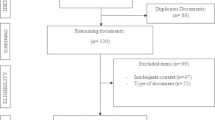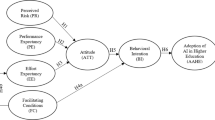Abstract
Over the past few years, educators in South Africa have been subjected to many changes in the educational sphere. Not only was a new approach to education, namely outcomes-based education (OBE) implemented, but the curriculum was also changed and now consists of eight learning areas, some of which are groupings of traditional school subjects (e.g. languages). Technology, however, is a new and for most educators unfamiliar learning area. The implementation in 1998 of the technology learning area in South African schools had educators reeling as they were unprepared and untrained to facilitate this new learning area. There was also limited information available for the assessment of learners in technology. Learners’ competence in technology education should be assessed in a meaningful and responsible manner, which requires more than just the evaluation of the end product. The purpose of this research was to develop a process-based assessment framework to support the technology teacher with assessment activities, which incorporate the technological process and provide opportunities for the assessment of aspects of the thinking sub-processes as part of the technological process. Qualitative action research was undertaken. Three Grade 7 learners and a teacher at a parallel medium primary school (school where two official languages are used congruently as medium of instruction) were involved in the case study. Resource, case study and a capability task were done by the three learners. For the purpose of the research project, information obtained from the capability task was used. This research focused on the initial idea generation stage (stage five) of the technological process, as well as creative and critical thinking (as thinking sub-processes) processes. Observation and semi-structured interviews were used as data-collection methods. The validity and reliability of the research were ensured by means of triangulation. Three main categories (findings) were named as aspects which could be employed when compiling a process-based assessment framework, namely outcomes, content and assessment methodology. Further subcategories were identified within each of these main categories. The framework will serve as a roadmap to technology teachers, especially those with little or no pedagogical knowledge in technology to assist them to base their assessment on sound methodology.

Similar content being viewed by others
References
Altrichter, H., Posch, P., & Somekh, B. (1993). Teachers investigate their work: An introduction to the methods of action research. New York: Routledge.
Ankiewicz, P. J. (2003). Technology education at school: Illusion or reality? Rand Afrikaans University, Johannesburg (Inaugural address on 15 October 2003).
Ankiewicz, P. J., & De Swardt, A. E. (2001). Principles, methods and techniques of technology education II, study guide. Johannesburg: Faculty of Education and Nursing, Rand Afrikaans University.
Ankiewicz, P. J., De Swardt, A. E., & Stark, R. (2000). Principles, methods and techniques of technology education I, study guide. Johannesburg: Faculty of Education and Nursing, Rand Afrikaans University.
Benbow, A., & Mably, C. (2002). Science education for elementary teachers. An investigation-based approach. Belmont: Wadsworth.
Broens, C. J. A. M., & Vries, M. J. de (2003). Classifying technological knowledge for presentation to mechanical engineering designers. Design Studies, 24, 457–471.
Brown, S., Race, P., & Smith, B. (1997). 500 tips on assessment. London: Kogan Page.
Compton, V., & Harwood, C. (2003). Enhancing technological practice: An assessment framework for technology education in New Zealand. International Journal of Technology and Design Education, 13(1), 1–26.
Creswell, J. W. (1994). Research design: Qualitative & quantitative approaches. California: Sage Publication, Inc.
Department of Education. (2002a). Curriculum 2005. Assessment guidelines, technology, senior phase. Department of Education, Pretoria.
Department of Education. (2002b). Revised National Curriculum Statement, Grades R-9, (Schools), Policy, Technology. Department of Education, Pretoria.
De Swardt, E., Ankiewicz, P., & Engelbrecht, E. (2005). Technology in South Africa since 1998: A shift from traditional teaching to outcomes-based education, PATT 15 (Haarlem, The Netherlands), Conference Proceedings, 1–10, 18–25 April 2005.
De Vries, M. J. (2003a). The nature of technological knowledge: Extending empirically informed studies into what engineers know. Techné, 6(3), 1–21.
De Vries, M. J. (2003b). The nature of technological knowledge: Philosophical reflections and educational consequences, PATT 13 (Glasgow, Scotland) Conference Proceedings, 83–86, 21–24 July 2003.
Dorst, K. (1997). Describing design. Delft: Technische Universiteit Delft (Thesis).
Eisenberg, E. (1996) Essential features of technology education. Paper presented at the International Conference on Technology Education, Cape Town, 14–17 October 1996.
Friedrich-Nel, H. S., De Jager, L., Joubert, G., & Nel, M. M. (2003). Emerging assessment trends in higher education. SAJHE/SATHO, 17(3), 49–65.
Garratt, J. (1998). Design and technology (2nd ed.). Great Britain: Cambridge University Press.
Gauteng Department of Education (GDE) and Gauteng Institute for Curriculum Development (GICD). (1999). Technology, draft progress map. Foundation, intermediate and senior phases. Levels 1 to 6 (for grades 1 to 9), Johannesburg.
Geyser, H. (2000). Outcomes-based education, implementation of OBE, study guide. Johannesburg: Faculty of Education and Nursing, Rand Afrikaans University.
Geyser, H. C., & Edley, L. (2000). Information technology skills for portfolio development. Johannesburg: Hand out, Rand Afrikaans University.
Glover, P. (1996). What are the inescapable features of technology education and what do they tell us about the development of a technology education curriculum. Paper presented at the International Conference on Technology Education, Cape Town, 14–17 October 1996.
Gultig, J., Lubisi, C., Parker, B., & Wedekind, V. (2002). Understanding outcomes-based education. Teaching and assessment in South Africa. Cape Town: Oxford University Press.
Gumbo, M. T. (1998). An investigation of the primary education upgrading programme (PEUP) from a technology education perspective. Rand Afrikaans University (M.Ed. Dissertation), Johannesburg.
Habeshaw, S., Gibbs, G., & Habeshaw, T. (1993). 53 interesting ways to assess your students (3rd ed.). Bristol: Technical and Educational Services.
Jakovljevic, M., Ankiewicz, P., De Swardt, E., & Gross, E. (2004). A synergy between the technological process and a methodology for web design: Implications for technological problem solving and design. International Journal of Technology and Design Education, 14, 261–290. doi:10.1007/s10798-004-4868-5.
Johnsey, R. (1995). The design process–does it exist? A critical review of published models for the design process in England and Wales. International Journal of Technology and Design Education, 5(3), 199–217. doi:10.1007/BF00769904.
Jones, A. (1997). Recent research in learning technological concepts and developing intellectual skills. International Journal of Technology and Design Education, 7(1–2), 83–96. doi:10.1023/A:1008813120391.
Killen, R. (2000). Teaching strategies for outcomes-based education. Landsdowne: Juta.
Kimbell, R. (1994a). Progression in learning and the assessment of children’s attainments in technology. International Journal of Technology and Design Education, 4, 65–83. doi:10.1007/BF01197584.
Kimbell, R. (1994b). Assessment of design and technology. In F. Banks (Ed.), Teaching technology (pp. 161–172) London: Routledge.
King, M., & Van Den Berg, O. (1992). Success or failure? Examination & assessment. Pietermaritzburg: Centaur in Association with the Independent Examiners Board.
Krathwohl, D. R. (1993). Methods of educational and social science research. An integrated approach. New York: Longman.
Leedy, P. D. (1997). Practical research. Planning and design (6th ed.). New Jersey: Prentice-Hall.
Le Grange, L., & Reddy, C. (2000). Continuous assessment. An introduction and guidelines to implementation. Kenwyn: Juta.
Mawson, B. (2003). Beyond ‘The Design Process’: An alternative pedagogy for technology education. International Journal of Technology and Design Education, 13(2), 117–128. doi:10.1023/A:1024186814591.
McCormick, R. (1997). Conceptual and procedural knowledge. International Journal of Technology and Design Education, 7(1–2), 141–159. doi:10.1023/A:1008819912213.
McCormick, R., Murphy, P., & Hennessy, S. (1994). Problem solving processes in technology education: A pilot study. International Journal of Technology and Design Education, 4, 5–34. doi:10.1007/BF01197581.
Merriam, S. B. (1998). Qualitative research and case study applications in education. California: Jossey-Bass.
Moreland, J., & Jones, A. (2000). Emerging assessment practices in an emergent curriculum: Implications for technology. International Journal of Technology and Design Education, 10, 283–305. doi:10.1023/A:1008990307060.
Mouton, J., & Marais, H. C. (1992). Basiese Begrippe: Metodologie van die Geesteswetenskappe. Pretoria: RGN-Uitgewers.
Naicker, S. M. (1999). Curriculum 2005. A space for all. An introduction to inclusive education. Cape Town: Renaissance.
Neethling, K. (1998). Neethling brain instrument, Version 5.0, On Compact Disc. Dr Kobus Neethling and Knowledge Brokers International Development, KBI.
Nelson, L. (1999) Kurrikulum 2005. Skoolvernuwing deur Kurrikulum 2005. ‘n Praktiese gids vir opvoeders en ouers.Kaapstad: Renaissance.
Reddy, V., Ankiewicz, P., De Swardt, E., & Gross, E. (2003). The essential features of technology and technology education: A conceptual framework for the development of OBE (Outcomes Based Education) related programmes in technology education. International Journal of Technology and Design Education, 13, 27–45.
Republic of South Africa (RSA). (1997). Government notice of the Ministry of Education, No 18051. Call for comments on the draft statement on the national Curriculum for grades 1–9 (Vol. 1, pp. 89–111). Pretoria: Government Printer.
Ropohl, G. (1997). Knowledge types in technology. International Journal of Technology and Design Education, 7(1–2), 65–72. doi:10.1023/A:1008865104461.
Ryle, G. (1949). The concept of mind. Penguin Books: Hammondsworth.
Satterly, D. (1989). Assessment in schools (2nd ed.). Oxford: Basil Blackwell.
Todd, R. D. (1990). The teaching and learning environment: Designing instruction via the technological method. The Technology Teacher, 50(3), 3–7.
Van der Horst, H., & McDonald, R. (1997). OBE. Outcomes-based education. A teacher’s manual. Pretoria: Kagiso.
Vandeleur, S. M. (1999). Indicators of creativity in a technology class: A case study. Rand Afrikaans University (M.Ed. dissertation), Johannesburg.
Van Niekerk, E. F. (2002). ‘n Prosesgebaseerde assesseringsraamwerk vir Tegnologie-onderwys: ‘n Gevalstudie, Randse Afrikaanse Universiteit (M.Ed.-verhandeling), Johannesburg.
Williams, J., & Williams, A. (1996). Technology education for teachers. South Melbourne: MacMillan Education.
Yin, K. R. (1994). Case study research—Design and methods. Thousand Oaks: Sage Publications.
Author information
Authors and Affiliations
Corresponding author
Appendix
Appendix
Excerpt a: Assessment rubric for self assessment
|
Excerpt b: Assessment rubric for self assessment
|
Rights and permissions
About this article
Cite this article
van Niekerk, E., Ankiewicz, P. & de Swardt, E. A process-based assessment framework for technology education: a case study. Int J Technol Des Educ 20, 191–215 (2010). https://doi.org/10.1007/s10798-008-9070-8
Received:
Accepted:
Published:
Issue Date:
DOI: https://doi.org/10.1007/s10798-008-9070-8






